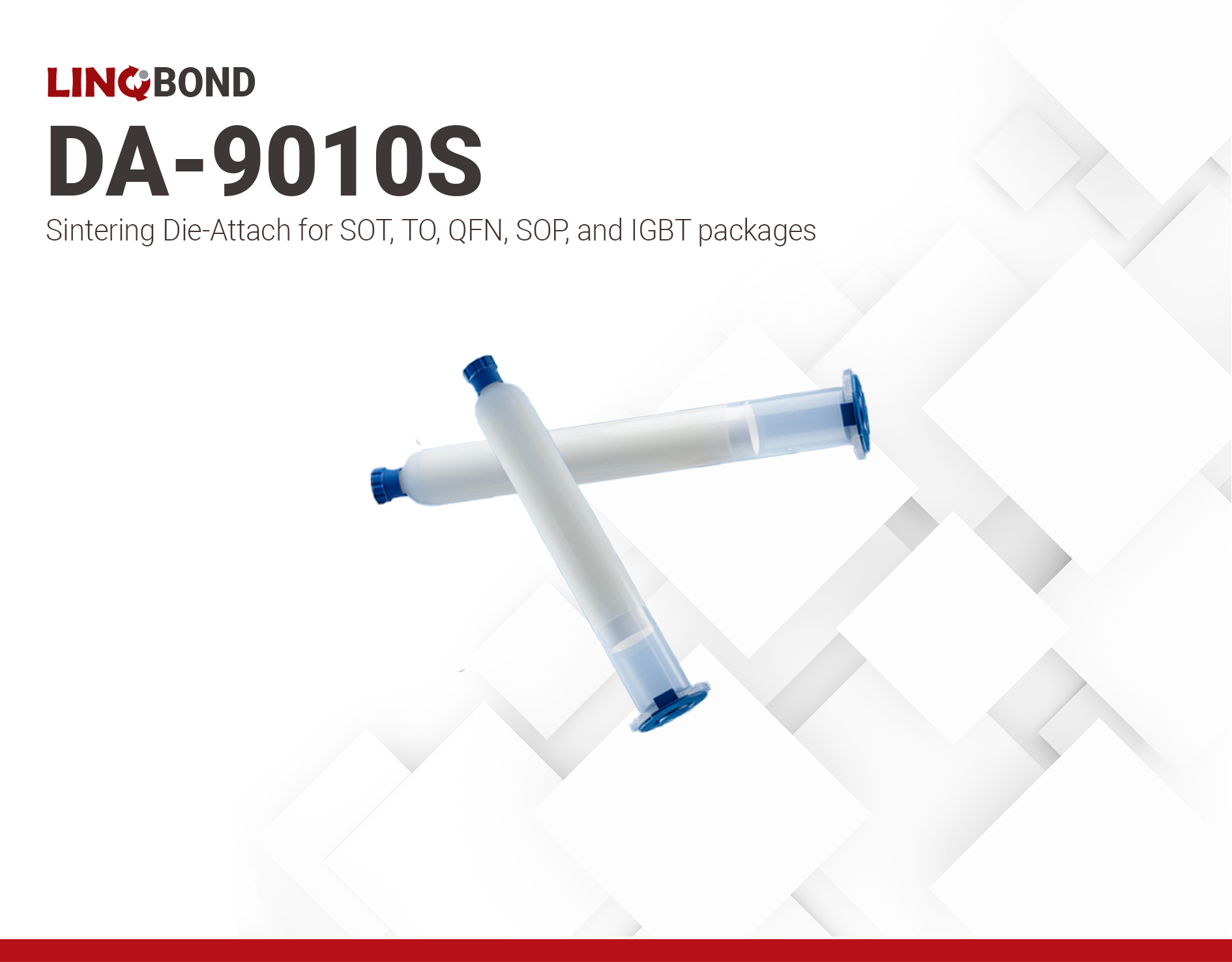LINQBOND DA-9010S | Sintering Die-Attach
- PFAS free
- Lead-free die attach
- SiC and GaN high power applications
Product Description
LINQBOND DA-9010S is a single-component, pressure-less silver sintering die attach. It has exceptional adhesion to bare Cu, and Au and Ag plated substrates. Full silver sintering can be achieved at 250°C exhibiting high electrical, thermal conductivity, and high reliability.
LINQBOND DA-9010S is typically used as die attach or lead-free solder alternative for high-power applications using SiC and GaN chips capable of operating at high voltages and temperatures such as RF base stations, EV charging, Photovoltaic (PV), Consumer Electronics, Aerospace and Defense. It can be used in various semiconductor packages such as SOT, TO, QFN, SOP, and IGBT.
Cure Schedule
Ramp to 80°C and hold for 30 min + ramp to 250°C and hold for 90 min
Ramp rate 5°C/min
Cool down rate 5°C to 10°C
Technical Specifications
| General Properties | |||||
| Filler Content | 88 % | ||||
| Work life @25°C Work life @25°C Work life is the amount of time we have to work with a material until it is no longer able to be easily worked and applied on a substrate. It is based on the change in viscosity and it can rely on the application requirements. | 24 hours | ||||
| |||||
| Physical Properties | |||||
| Thixotropic index Thixotropic index Thixotropic Index is a ratio of a material s viscosity at two different speeds in Ambient temperature, generally different by a factor of ten. A thixotropic material s viscosity will decrease as agitation or pressure is increased. It indicates the capability of a material to hold its shape. Mayonnaise is a great example of this. It holds its shape very well, but when a shear stress is applied, the material easily spreads. It helps in choosing a material in accordance to the application, dispense method and viscosity of a material. | 5.8 | ||||
| Viscosity Viscosity Viscosity is a measurement of a fluid’s resistance to flow. Viscosity is commonly measured in centiPoise (cP). One cP is defined as the viscosity of water and all other viscosities are derived from this base. MPa is another common unit with a 1:1 conversion to cP. A product like honey would have a much higher viscosity -around 10,000 cPs- compared to water. As a result, honey would flow much slower out of a tipped glass than water would. The viscosity of a material can be decreased with an increase in temperature in order to better suit an application | 70000 mPa.s | ||||
| Electrical Properties | |||||
| Volume Resistivity Volume Resistivity Volume resistivity, also called volume resistance, bulk resistance or bulk resistivity is a thickness dependent measurement of the resistivity of a material perpendicular to the plane of the surface. | 5.6x100 Ohms⋅cm | ||||
| Thermal Properties | |||||
| |||||
| Thermal Conductivity Thermal Conductivity Thermal conductivity describes the ability of a material to conduct heat. It is required by power packages in order to dissipate heat and maintain stable electrical performance. Thermal conductivity units are [W/(m K)] in the SI system and [Btu/(hr ft °F)] in the Imperial system. | 210 W/m.K | ||||



